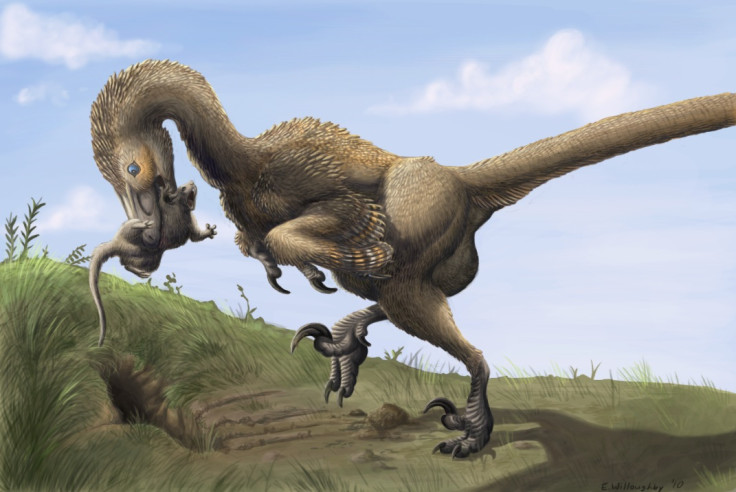Dinosaur discovery: Rare fossils of giant feathered raptor dromaeosaurid found in South Dakota

Palaeontologists in South Dakota in the United States have discovered what they say are the fossils of two "exceptionally large" feathered dinosaurs. The team of palaeontologists led by Dr Robert DePalma of the University of Kansas made the discovery in the fossil-rich region of the Hell Creek Formation.
The fossils are of dromaeosaurid, a two-legged feathered dinosaur. The fossils date back to 66 million years ago, making them among the youngest dinosaur fossils discovered. The findings were published in the latest issue of Paleontological Contributions.
According to researchers, the find is rare, as only a small percentage of dromaeosaurids, often called raptors, were gigantic. "Most dromaeosaurids were small- to medium-sized cursorial, scansorial, and arboreal, sometimes volant predators, but a comparatively small percentage grew to gigantic proportions," authors of the report said.
The dinosaurs are also the first dromaeosaurids ever discovered in the region. Only two other such giant raptors have been described in North America, the researchers noted. Elsewhere in the world, dromaeosaurid fossils have been found as far as in China, Europe, Antarctica, Mongolia, Africa, Japan, Manchuria, Madagascar and Argentina.
"The discovery represents the first giant dromaeosaur from the Hell Creek Formation, and the most recent in the fossil record worldwide," they said adding that the discovery of the new predator will completely change their understanding of the prehistoric environment in the region.
Palaeontologists identified the fossils of dromaeosaurid through the presence of feather bumps also known as quill knobs on the forearm bone (ulna) of the dinosaurs.
"A row of prominent ulnar papilli or 'quill knobs' on the ulna is our first clear evidence for feather quills on a large dromaeosaurid forearm and impacts evolutionary reconstructions and functional morphology of such derived, typically flight-related features," the researchers added.
© Copyright IBTimes 2025. All rights reserved.






















